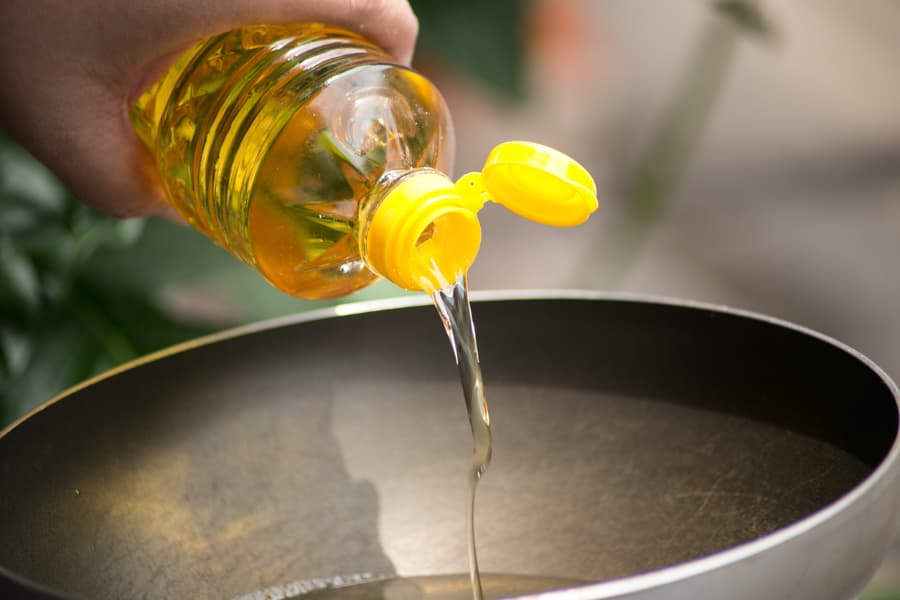How to properly handle leftover cooking oil?

How do you usually dispose of leftover cooking oil? Do you pour it directly down the sink, toilet, or drain? I’m sure many of you have done this or are still doing it. However, did you know that every time you pour leftover cooking oil down the drain, you’re contributing to clogged drains, water pollution, and negatively impacting the lives of many people? Many countries have issued warnings about this issue.
In the United States, it is estimated that 47% of all sewer spills each year are caused by the accumulation of grease. The situation is even more serious in the UK, where 3/4 of annual sewer blockages could be prevented if people didn’t pour grease down the drain.
In 2017, a 130-ton, 250-meter-long “fatberg” was discovered in London, blocking part of the city’s sewer network. To remove this massive block of grease, workers had to work tirelessly for three consecutive weeks to break up the hardened, concrete-like substance. The waste was then sucked into an oil tanker and transported to a recycling plant in Stratford. (According to Vietnamplus newspaper)
- So how can you properly dispose of leftover cooking oil while still protecting the environment? Let’s find out!
1. Don’t pour leftover cooking oil down the drain
Pouring leftover cooking oil down the drain will clog pipes, adversely affect wastewater treatment systems, and pollute water sources. In addition, when poured down the drain, leftover cooking oil will not decompose naturally but will form a thin film on the water surface, hindering the gas exchange of aquatic organisms.2. Reuse leftover cooking oil If you cook often, reusing leftover cooking oil is a useful and economical solution. However, to ensure safety, you should only reuse oil 1-2 times and filter out food residue using a sieve or clean cloth.
How to store used cooking oil: Let the oil cool completely, then use a funnel to pour the oil into a sealed bottle or jar. Then store the oil in the refrigerator or a cool, dry place for 1-2 more uses. A small tip is to label the container with the reuse date to avoid using old oil that is harmful to your health.
3. Recycle for other purposes Leftover cooking oil can be recycled for many other purposes around the home that you may not have thought of. Here are a few ways to reuse leftover cooking oil instead of throwing it away:
- Make homemade soap: leftover cooking oil can be used to make soap at home. This is not only a way to recycle oil but also a cost-saving method for your family. You just need to add a few ingredients like lye (NaOH), distilled water, and essential oils to create environmentally friendly soap bars. You can refer to the guide on making homemade soap from leftover cooking oil here.
- Lubricant for objects: leftover cooking oil can be used to lubricate metal objects such as door hinges, rusty knives, or other household tools. This is a simple yet useful way to reuse oil.
- Biofuel: although not easy to do at home, leftover cooking oil can actually be used to produce biodiesel. If you can’t do this yourself, look for organizations or facilities that specialize in collecting leftover cooking oil for recycling into biodiesel – an environmentally friendly fuel.
4. Collect and dispose of properly One of the best ways to dispose of leftover cooking oil is to collect it and take it to designated waste collection points. Many localities now have programs to collect leftover cooking oil for recycling or environmentally friendly disposal. Put the oil in bottles or jars and take it to these collection points
5. Consider the amount of oil you use An indirect way to reduce the amount of leftover cooking oil that needs to be disposed of is to use oil efficiently. You can reduce the amount of oil used for frying by using an air fryer or other low-oil cooking methods such as baking or steaming. This not only helps reduce the amount of leftover oil but is also good for your health!
I hope this article has provided you with useful information on how to properly dispose of leftover cooking oil. Please share it with your friends and family to join hands in protecting the environment from the simplest actions.







